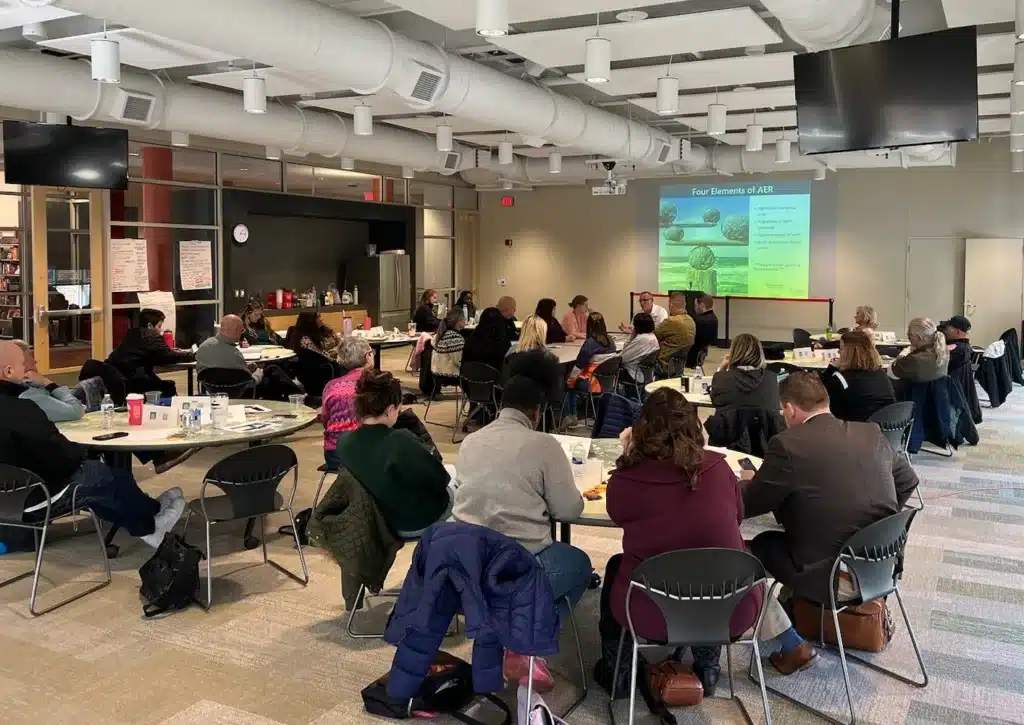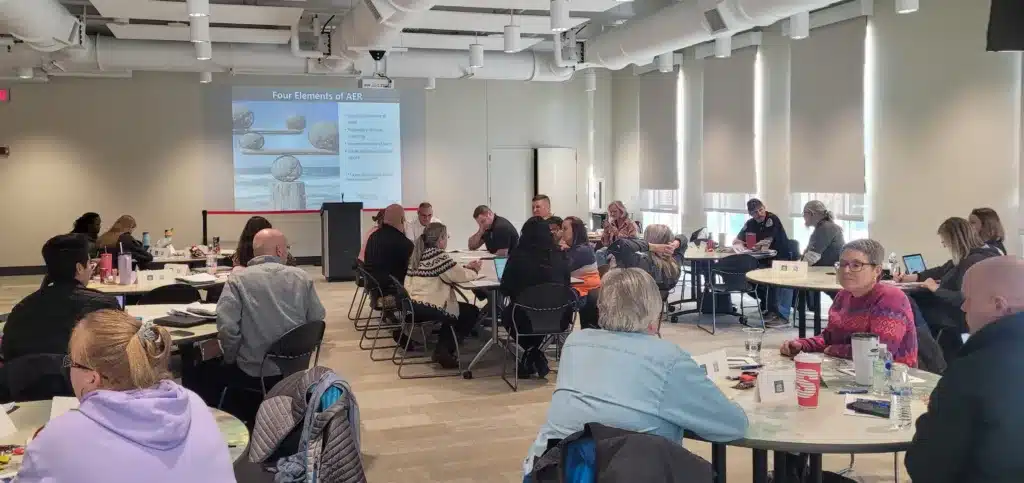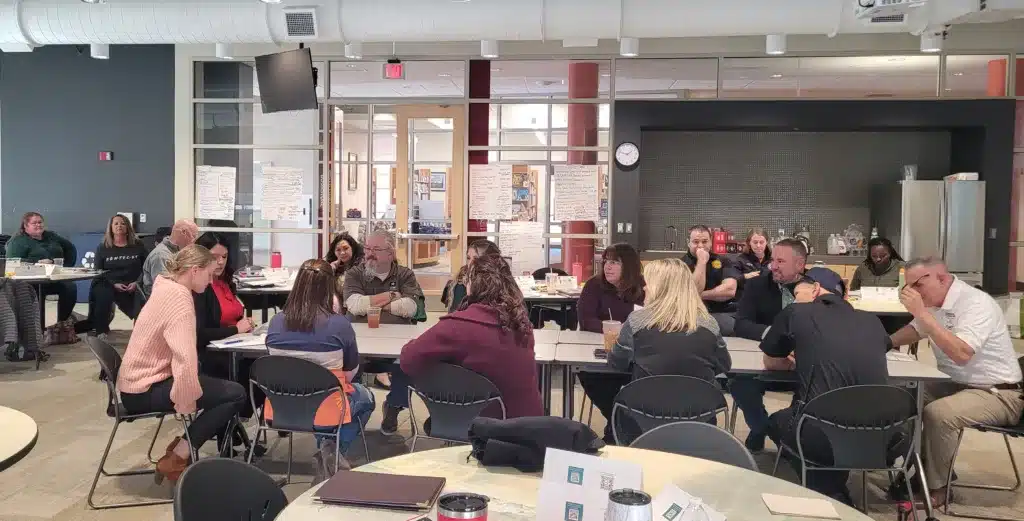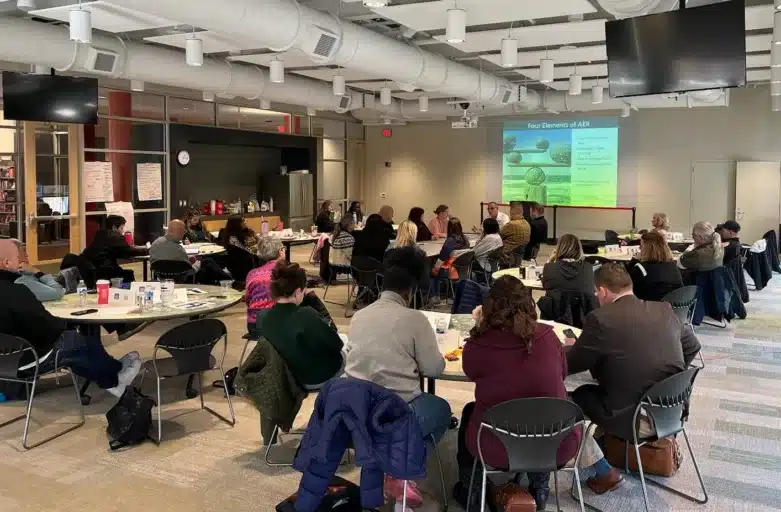Frankfort to Become Sixth Situation Table to Launch in Kentucky



FRANKFORT, Ky. – Kentucky’s sixth Situation Table – a model that facilitates multi-agency interventions for those at risk of experiencing a crisis – will launch this month following a recent training program led by Operation 2 Save Lives (O2SL) & QRT National.
The two-day training took place from Nov. 28-29 and was delivered by Scott Allen, Mike Botieri and Dan Meloy of O2SL & QRT National. The training was coordinated in partnership with the Police Assisted Addiction and Recovery Initiative (PAARI) and the Kentucky Opioid Response Effort (KORE), a division of the Kentucky Cabinet for Health and Family Services.
Nearly 40 participants attended the training representing agencies across public safety, local government, treatment and healthcare, peer recovery, schools, youth and children services, faith and family support.
“This was one of the largest Situation Table trainings we’ve delivered to date and we are grateful for the leadership and engagement of Frankfort Police Chief Dustin Bowman and all of the partnering agencies who participated,” Botieri said.
The training focused on equipping attendees with skills and lessons necessary to form a Situation Table. A Situation Table is a unique, risk-based rapid triage model that brings together multiple human service providers to address situations where individuals and/or families are facing a specific threshold of Acutely Elevated Risk. Situation Tables are comprised of representatives from public safety agencies, public health agencies, service providers and other community partners in participating communities.
Through the model, an individual or family at Acutely Elevated Risk is referred to the Situation Table for consideration of possible intervention before a crisis occurs. The Table participants collaborate and discuss the identified risk factors and possible services. Upon reaching a consensus, the Table identifies a team of agencies to attempt to locate the individual or family and connect them to services.
Dr. Katherine Marks, Commissioner of the Kentucky Department for Behavioral Health, Developmental, and Intellectual Disabilities also spoke at the training and shared her support for implementing Situation Tables across the state, complementary to the state’s robust outreach initiatives.
The Frankfort Situation Table will launch on Dec. 19. Situation Tables also launched in Powell County and Boyd County this year and Louisville, Paducah and Perry County in 2022. Additional Situation Tables are expected to be trained and launched in 2024, which will bring the total number of Situation Tables operating across the state to 11. O2SL & QRT National and PAARI support the training and implementation of each Situation Table.
“It’s great to see so many Situation Tables operating in Kentucky and the positive impact they’re able to have on their communities,” Meloy said. “We’ve worked over the past several years with 10 Quick Response Teams that cover about 35 counties in Kentucky, and we’re grateful to continue to return to Kentucky to widen the reach of this important model.”
The HUB Situation Table model was developed in Canada by Global Network for Community Safety (Global Network), a Canadian-based firm that focuses on innovations to improve community safety and wellbeing across Canada and in the U.S. Through the O2SL & QRT National – Global Network partnership, the organizations work cross-border to collectively provide multi-agency community responses to address issues of marginalization, for pre-crisis identification and crisis interventions, while creating pathways to care and support. Their combined expertise and suite of services – based on internationally recognized best past practices – help provide communities with tailored responses to meet their current needs, and the ability to rapidly adjust to an evolving landscape of risk factors including those around substance use disorders, mental health disorders, and related social health issues.
There are over 150 Situation Tables across Canada and the U.S.
###

